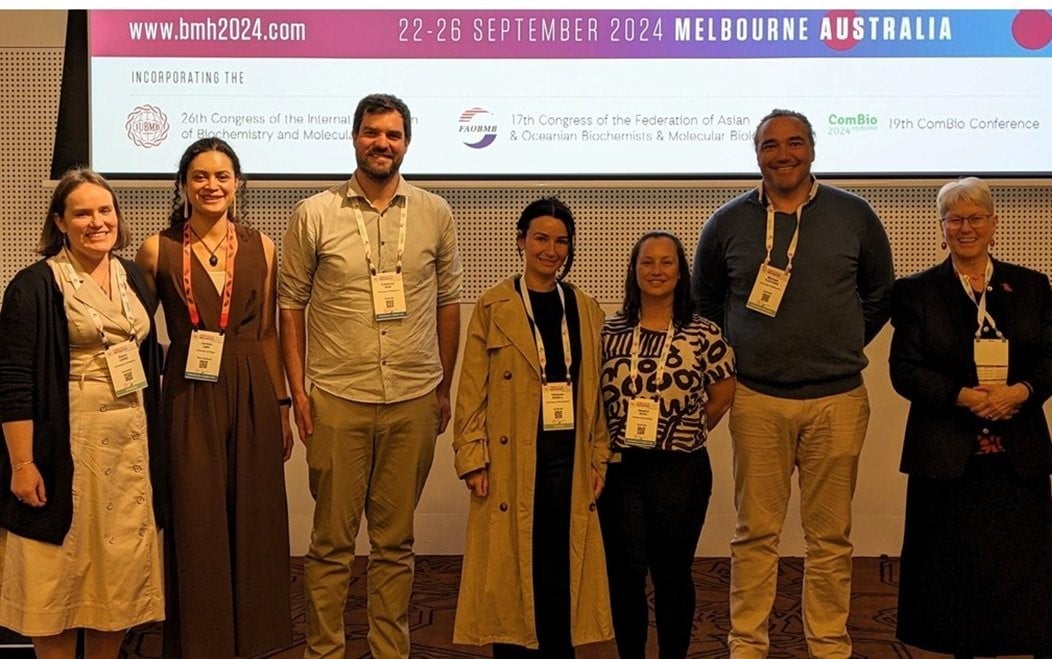Search

News & Events
Beyond the horizon: improving cancer outcomes for Indigenous childrenDr Jessica Buck, a researcher at The Kids Research Institute Australia Cancer Centre and a Kamilaroi woman, is on a mission to address the unique challenges faced by Aboriginal and Torres Strait Islander children with cancer.
Research
Heterogeneity and distribution characteristics of tertiary lymphoid structures predict prognostic outcome in esophageal squamous cell carcinomaTertiary Lymphoid Structures (TLSs) are ectopic lymphoid aggregates that form within the tumor microenvironment (TME) and are increasingly recognized as potential prognostic biomarkers in various cancers. However, the spatial heterogeneity and prognostic value of TLSs in esophageal squamous cell carcinoma (ESCC) remain poorly defined. This study aimed to characterize the spatial distribution patterns of TLSs and tumor-infiltrating lymphocytes (TILs), and to establish a refined prognostic model for ESCC patients in both surgery-only and neoadjuvant therapy cohorts.
Research
Supportive care needs and associated factors among caregivers of patients with colorectal cancer: a cross-sectional studyTo assess the level of supportive care needs of caregivers of colorectal cancer patients and explore the related key influencing factors. Totaling 283 caregivers of patients with colorectal cancer were investigated in this study.
Research
Post-surgery financial toxicity and its influencing factors in colorectal cancer care: A cross-sectional studyThis study aimed to investigate the influence factors of financial toxicity experienced by colorectal cancer patients after surgery. The results will provide deep insights for developing effective intervention strategies to address this common issue of colorectal cancer care.
Research
Caregiver burden, mutuality, and family resilience in colorectal cancer caring: A mediating model analysisThis study investigates the interaction between caregiver burden, mutuality, and family resilience in colorectal cancer management, and determines whether mutuality affects the effect of caregiver burden on family resilience.
Research
A novel Fc-enhanced humanized monoclonal antibody targeting B7-H3 suppresses the growth of ESCCEsophageal squamous cell carcinoma (ESCC) is a prevalent malignant tumor of the digestive tract with a low 5-year survival rate due to the lack of effective treatment methods. Although therapeutic monoclonal antibodies (mAbs) now play an important role in cancer therapy, effective targeted mAbs are still lacking for ESCC.
Research
Identification of fatty acid amide hydrolase as a metastasis suppressor in breast cancerClinical management of breast cancer (BC) metastasis remains an unmet need as it accounts for 90% of BC-associated mortality. Although the luminal subtype, which represents >70% of BC cases, is generally associated with a favorable outcome, it is susceptible to metastatic relapse as late as 15 years after treatment discontinuation.

News & Events
Why timing matters: How tumours respond to immunotherapy treatments over timeResearchers have identified key differences between cancers that respond to immunotherapy and those that do not.

News & Events
Researchers receive crucial near miss fundingCongratulations to three outstanding The Kids Research Institute Australia researchers who have received second chance WA health funding designed to support researchers who have narrowly missed out on highly competitive national funding.
Research
Disruption of ovarian function and induction of apoptosis in female mice by Brefeldin A: Mechanistic insights into reproductive toxicityThe investigation of ovarian development, dysfunction, and aging is essential for female reproductive health. Despite extensive research on the cellular functions of Brefeldin A (BFA) as an intracellular transport inhibitor, its specific effects and mechanisms on ovarian development/aging remain inadequately understood.
